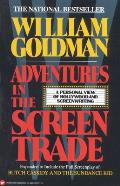Publishers as Venture Capitalists?
Another of Paul Levitz’s observations about the publishing industry last week was that book publishers have usually operated like bankers. They extend interest-free loans to authors in the form of advances, to be paid back (they hope) in royalties over succeeding years.
And like bankers, those companies are quicker to loan money to people who don’t need it: authors who are already earning a fine living off past books or in other fields. New or unknown authors, especially in fiction, have to do most of their work before they see any money, and then they don’t see much.
(That of course reflects that publishing advances aren’t exactly like loans. They’re also bids on properties, and in any business what looks more like a sure thing commands a higher price than an unproven quantity.)
Levitz suggested that publishers will have to become more like venture-capital firms, investing earlier in authors’ careers and projects. And, presumably, offering more guidance and control over their creations, as venture capitalists watch over the start-ups they invest in. Hollywood studios work closer to that model, paying earlier in the process to develop projects with a larger payoff.
I see a couple of problems for authors with that model. First, Hollywood studios are notorious for the number of projects they abandon: scripts in turnaround, TV pilots shot and never aired, and so on. Likewise, venture capitalists know that many of their investments won’t pay off, and they pull the plug a lot. Right now authors who get as far as a publishing contract are usually sure that their books will eventually see print, even if they’re marketed even more weakly than usual.
Hollywood studios are also notorious for getting involved in the creative process with script notes, personnel ultimatums, recutting, and so on. All to make the final stories more entertaining, of course. But does that work?
The screenwriter and novelist William Goldman famously wrote in Adventures in the Screen Trade:
And like bankers, those companies are quicker to loan money to people who don’t need it: authors who are already earning a fine living off past books or in other fields. New or unknown authors, especially in fiction, have to do most of their work before they see any money, and then they don’t see much.
(That of course reflects that publishing advances aren’t exactly like loans. They’re also bids on properties, and in any business what looks more like a sure thing commands a higher price than an unproven quantity.)
Levitz suggested that publishers will have to become more like venture-capital firms, investing earlier in authors’ careers and projects. And, presumably, offering more guidance and control over their creations, as venture capitalists watch over the start-ups they invest in. Hollywood studios work closer to that model, paying earlier in the process to develop projects with a larger payoff.
I see a couple of problems for authors with that model. First, Hollywood studios are notorious for the number of projects they abandon: scripts in turnaround, TV pilots shot and never aired, and so on. Likewise, venture capitalists know that many of their investments won’t pay off, and they pull the plug a lot. Right now authors who get as far as a publishing contract are usually sure that their books will eventually see print, even if they’re marketed even more weakly than usual.
Hollywood studios are also notorious for getting involved in the creative process with script notes, personnel ultimatums, recutting, and so on. All to make the final stories more entertaining, of course. But does that work?
The screenwriter and novelist William Goldman famously wrote in Adventures in the Screen Trade:
Nobody knows anything. . . . Not one person in the entire motion picture field knows for a certainty what’s going to work. Every time out it’s a guess and, if you’re lucky, an educated one.What’s more, writing a book is a far less collaborative process than making a movie, or creating a tech company. How much solid advice can publishers offer to authors early in the creative processs? How many experts can they bring on board, or how many systems can they put in place, when the whole enterprise consists of one person and one keyboard?



No comments:
Post a Comment